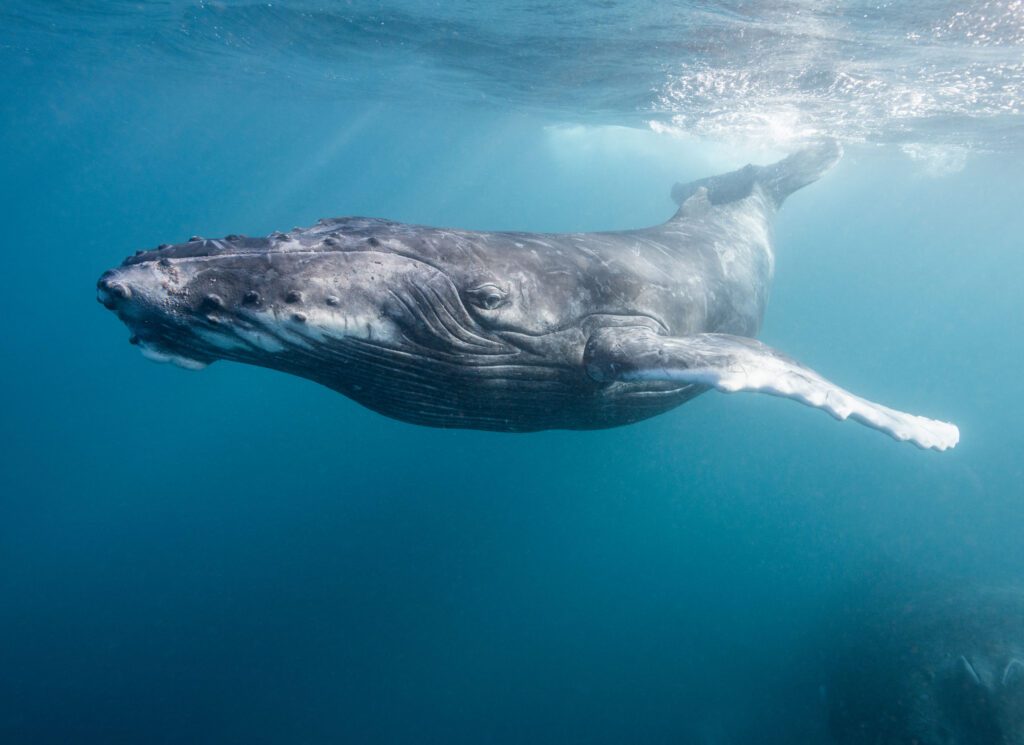
- Press Release
28 states have signed the Global Ocean Treaty into law while the UK is failing to get onboard
The European Commission and six EU countries, Cyprus, Finland, Hungary, Latvia, Portugal and Slovenia, have today submitted their ratification of the Global Ocean Treaty at the United Nations headquarters. Despite repeated promises to sign the Treaty into UK law, the UK government is failing to get onboard.
Greenpeace is warning that, while the progress from other European countries is welcome, it is nowhere near enough to ensure the treaty enters into force in 2025, and in time to meet the goal of protecting at least 30% of the ocean by 2030 – agreed by all governments in 2022[1].
The UK was among the first countries to sign the Global Ocean Treaty on 20 September 2023, indicating its intention to pass the Treaty into UK law. The current Labour government has repeatedly said it intends to ratify the Treaty, but has so far failed to introduce the necessary primary legislation to do so or to commit to a timeline. This has prompted calls from the International Development Committee and environmental groups to begin the legislative process urgently. Responsibility for this process lies with Foreign Secretary David Lammy.
Chris Thorne, Greenpeace UK senior ocean campaigner, said:
“David Lammy wants the UK to be a leader on climate and nature, so he can’t afford to miss the boat on signing the Global Ocean Treaty into UK law. The Treaty can help to protect a third of our blue planet from threats like industrial fishing. As international action on ocean protection accelerates, the UK risks turning up empty handed at a key UN conference next month. Lammy must stop failing the ocean which all life on Earth depends on, prioritise ocean protection and urgently secure parliamentary time for the UK to join other European countries in signing the Treaty into law. We hear legislation has been drafted and is ready to go, it just needs pushing over the line.”
The Global Ocean Treaty requires ratification by 60 states to enter into force. Cyprus, Finland, Hungary, Latvia, Portugal and Slovenia have joined the 22 other states that have already deposited their ratification at the UN, making a total of 28 so far, nearly half of the 60 required. Governments had aimed to ratify the Treaty by June’s UN Ocean Conference to ensure that it enters into force quickly enough to protect 30% of the oceans by 2030. This Treaty is the only legal tool which can deliver this target on the high seas[2].
Lukas Meus, Greenpeace Central and Eastern Europe ocean campaigner, said:
“It gives us hope to see such a large group of European countries ratifying the Global Ocean Treaty, but it’s still not enough. Governments had targeted the UN Ocean Conference as their deadline to ratify the Treaty, but even with this group of countries, that target is set to be missed. More countries must ratify the Treaty at the UN Ocean Conference, and should also confirm their support for a global moratorium on deep sea mining. Only then could we call this conference a success.”
The UN Ocean Conference is the first high-level meeting after a deep sea mining company submitted the first-ever application to mine the deep sea to the US Government, bypassing the International Seabed Authority (ISA), the regulatory body set up by the United Nations to protect the deep sea as the common heritage of humankind and decide whether deep sea mining can start in the international seabed[3].
With this new looming threat of exploitation, countries must make it clear that deep sea mining must not be allowed to start in 2025 and actively work towards securing a moratorium at the upcoming meeting of the International Seabed Authority in July, just weeks after the UN Ocean Conference (UNOC).
Greenpeace UK is calling on the UK government to:
- Prioritise ratifying the Global Ocean Treaty by making time in the parliamentary schedule ahead of UNOC
- Speak out in favour of a global moratorium on deep sea mining and use diplomatic influence to build support for this and the multilateral system
- Implement a full ban on all forms of destructive fishing, including bottom trawling, in all UK marine protected areas
- Work with the British Overseas Territory of Bermuda and other nations to champion one of the world’s first high seas sanctuaries in the Sargasso Sea. This stunning ecosystem supports a plethora of iconic wildlife including humpback whales, dolphins and sea turtles
Ends
Contact
Alexandra Sedgwick, Greenpeace UK press officer, alexandra.sedgwick@greenpeace.org, 07739 963 301
Notes to editors
[1] Cyprus, Finland, Hungary, Latvia, Portugal and Slovenia have joined Palau, Chile, Belize, Seychelles, Monaco, Mauritius, Federated States of Micronesia, Cuba, Maldives, Singapore, Bangladesh, Barbados, Timor Leste, Panama, St. Lucia, Spain, France, Malawi, Marshall Islands, Antigua and Barbuda, Republic of Korea and Costa Rica.
[2] In 2022, during the UN Biodiversity COP15, states agreed on a target of protecting at least 30% of the ocean by 2030, a figure supported by scientists for several years. 2.7% of the global ocean is currently fully or highly protected from human activities, and the figure is just 0.9% for areas of the high seas, which are beyond national jurisdiction. Greenpeace calculates that at the current rate of protection, the 30% target will not be reached until 2107.
[3] In a media statement, the European Commission has said that it “deeply regrets” the US president’s Executive Order that “circumvents” the negotiations in the ISA, and that “it is crucial to recall that its provisions reflect customary international law and are thus binding on all states irrespective of whether they have acceded to the Convention or not.”